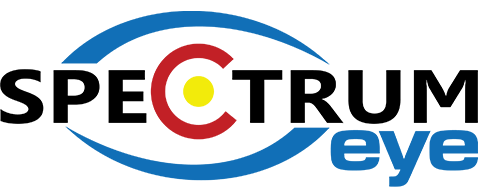Most of us rely on digital screens for everything from work and shopping to staying in touch with family. However, excessive screen time can negatively impact your eye health, especially as you age. As we get older, our eyes become more vulnerable to fatigue, dry eye syndrome, and a condition known as cataracts. Knowing how screens influence eye health can help you take better care of your vision now and in the future.
In this blog, we explore how screen time can impact aging eyes and your cataract risk. If you’re concerned about age-related vision changes or cataracts, don’t hesitate to schedule an eye exam in North Colorado Springs at Spectrum Eye Care. We are here to help with all your family’s eye care needs, whether you require computer glasses, cataract treatment, or other solutions.
What are cataracts?
Cataracts occur when the natural lens of the eye becomes cloudy, causing blurry or dim vision. This clouding typically develops slowly over time and is one of the most common causes of vision loss in adults over 60. Common signs of cataracts include:
- Blurry or hazy vision
- Increased sensitivity to light and glare
- Difficulty seeing at night
- Fading or yellowing of colors
- Frequent changes in your eyeglass prescription
While age is the leading risk factor, other factors, such as UV exposure, smoking, certain medications, and possibly screen time, may accelerate cataract development.
Can screen time cause or worsen cataracts?
While screen time alone does not directly cause cataracts, it can contribute to the overall strain and aging of your eyes. Excessive screen use can lead to symptoms like dry eyes, fatigue, and blurred vision, which may make it harder to notice early signs of cataracts.
Digital devices emit blue light, which has been studied for its potential impact on eye health. There’s no strong evidence that blue light from screens causes cataracts. However, some research suggests it may contribute to retinal stress and might accelerate aging in the eye.
Additionally, screen-heavy lifestyles often mean less time spent outdoors. Natural light and a healthy lifestyle are critical for maintaining good vision. Too much time indoors can reduce the variety of visual tasks your eyes perform, which is something that helps keep them strong over time.
How aging eyes react to screen time
As we age, our eyes naturally lose some of their flexibility and ability to focus, especially up close. This condition, called presbyopia, makes screen use more difficult and fatiguing. When you combine this with reduced tear production, which also comes with age, long hours in front of a computer or phone can lead to:
- Eye strain
- Headaches
- Dry or burning eyes
- Difficulty focusing
- Increased glare sensitivity
These symptoms often overlap with the early signs of cataracts, which is why routine eye exams are crucial if you spend a lot of time on screens.
Tips to protect your vision and manage screen time
Even though screens are part of modern life, there are ways to reduce their impact and support healthy aging eyes:
- Follow the 20-20-20 rule: Every 20 minutes, look at something 20 feet away for 20 seconds.
- Use proper lighting: Avoid working in dimly lit rooms or with bright screen glare. Adjust your lighting to reduce strain and improve contrast.
- Use artificial tears: These can relieve dryness caused by screen exposure.
- Use screen filters or glasses with blue light protection: Blue light glasses can help reduce blue light exposure.
- Schedule regular eye exams: Early detection of cataracts and other conditions is key to preserving vision.
- Stay hydrated and blink often: Screen time can reduce blinking, which leads to dry eyes. Make sure to blink frequently and drink plenty of water during the day.
Protect your vision as you age
Your eyes are working hard every day, especially in a screen-filled world. If you’re concerned about your screen habits or noticing vision changes, schedule an appointment at Spectrum Eye Care today. Our experienced team can diagnose cataracts and other age-related eye conditions and create a personalized management plan tailored to your needs. Please give us a call at 719-593-2333 or fill out our online appointment request form.




